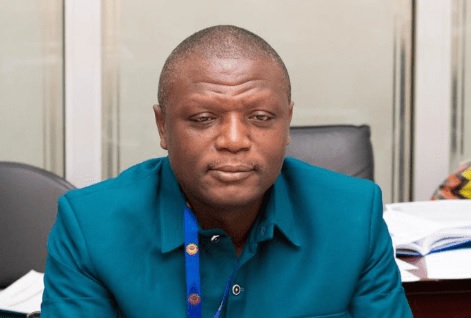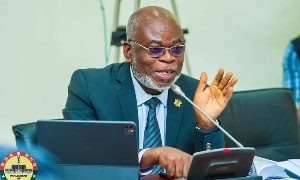The Africa Centre for Energy Policy (ACEP) has raised critical concerns about the management of Ghana’s upstream petroleum sector, with particular emphasis on Springfield’s Afina-1x appraisal programme.
According to ACEP, governance failures and poor regulatory decisions are undermining the potential of Ghana’s oil industry, which could have long-term negative consequences.
Speaking on the sidelines of the IMF and World Bank Annual Meetings, the Executive Director of ACEP stressed the declining oil production in Ghana and the failure of government policies to attract exploration investment.
He attributed the country’s fiscal challenges, in part, to over-reliance on optimistic oil revenue forecasts.
“The Ministry of Finance has consistently projected high oil production levels to support borrowing and financial commitments. However, these forecasts were overly optimistic, and the reality has been a significant downturn in both production and investment,” he explained.
ACEP addressed the ongoing dispute between Eni and Springfield over the Afina discovery and Sankofa field, and the inconsistencies in data presented in Springfield’s appraisal programme.
ACEP’s Executive Director raised concerns about the reliability of the data used to determine Tract Participation (TP) percentages in the unitization directive, which awarded Springfield 54.545% and Eni 45.455%.
“The appraisal programme presented by Springfield had key inconsistencies, such as their estimate of the Oil Water Contact (OWC) being significantly different from what was used by the Ministry of Energy.”
“If the right data had been used from the start, the commercial viability of Afina would have required further assessment, potentially avoiding the waste of three years in the unitization process,” he noted.
Another concern raised by ACEP was the $50 million cost of re-entering the Afina well to assess reservoir productivity and potential pressure changes.
The think tank questioned why this test wasn’t conducted during the original drilling campaign when hydrocarbons were first encountered.
“This delay in conducting reservoir flow tests has led to increased costs for Ghana National Petroleum Corporation (GNPC) and its partners. It reflects a failure in regulatory oversight, which has placed an unnecessary financial burden on Ghana,” the ACEP director added.
ACEP also criticized the lack of collaboration between Springfield and Eni in the appraisal programme, which is meant to establish connectivity between the Afina and Sankofa fields as part of the unitization process. The Executive Director expressed disappointment over the missed opportunity for a collaborative effort, especially in light of the recent arbitration ruling.
“Instead of litigating investors, the government should have focused on sound scientific approaches to resolve technical issues. A joint study with Eni would have improved the credibility of the unitization process and saved time,” he remarked.
ACEP’s stance on these issues reflects its broader commitment to defending national interest and advocating for better governance in the oil and gas sector.
Kodzo Yaotse, Policy Lead for Petroleum & Conventional Energy at ACEP, urged the government to adopt transparent and investor-friendly policies in line with global trends in energy transition.
“As the world moves towards decarbonization, it is critical for Ghana to ensure that its oil and gas industry is transparent and governed by sound policies. Misgovernance, political interference, and regulatory failures threaten to erode the long-term potential of the sector, leaving Ghana vulnerable in a world of stranded assets,” Yaotse said.

















































































